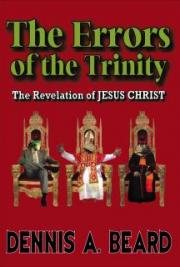In a Latin American country where the Catholic church has banned sexual education, and family planning is accessible only to those who have managed to liberate themselves from religious dogma (the middle and upper classes of society), the poor continue to have more children than they can support. To be surrounded by children in an increasingly competitive economy, in which prices are constantly rising while job opportunities remain limited, provokes an accumulation of stress which people vent against their offspring. As we noted, nearly half of Costa Rica’s children are either unwanted or unplanned, something that is borne out by the levels of child abuse in the families of our interviewees. It is hardly surprising, then, that many of them seek other avenues to “resolve” or “overcome” the abuse suffered previously, in public places. But it is not only the poor who are affected by the church’s anti-sex stance. Homosexuals -- a minority who are sufficiently weak not to pose a threat -- are the prime target of attacks on immorality. Instead of focusing on infidelity and heterosexual promiscuity, the clergy specialize in promoting homophobia. In this way, they try to make us understand that they are fighting for Christian morals, despite the fact that the Church ignores the excesses of the majority of the population. Thus, the gays also experience great violence in a homophobic society, which they try to “resolve” as adults.
The disintegration of poor families because of their large size and the insertion of the economy into a global marketplace has filled the country with criminals and “chapulines”. AIDS has also filled the country with gays who object to the way in which they have been treated, and are aware that traditional religious morality has allowed them to die like animals. At some imprecise moment in the past few years, these two groups began a small revolution in their repressed bodies. Without having planned it, and without even realizing what they were doing, they took over the public places of this small country to protest against the sexual and social repression experienced by minorities. What appears only as a source of pleasure cannot be separated from politics. For two men to dare to have oral sex in a park, something more than desire is required: an awareness that traditional morality and the prevailing sexual discourses do not include them. This break with traditional discourses which gays and “chapulines” enact every day in public places, is a message for their friends and for everyone who pays attention. It might be expressed in a physical or non-verbal manner (after all, the poor and minorities have a particular problem with language which excludes them), but is it sufficiently clear for others, such as police officers, to have understood it? Or do we think that the police officer who chooses to have public sex is not trying to whisper something in our ear?
But the social protest which public sex represents cannot be seen simply as a cry of freedom. In some terrible way, it also repeats the oppression of the poor and the dispossessed. The “locust” who must sell his penis in a public park is not doing anything different to what his father did when he washed the car windscreens of the middle classes. Once again, he is at the service of those who have the money to buy him. He is also ready to be abandoned when a better “car wash” or a bigger penis appears. The large number of gay men murdered by those who frequent public sex places is another kind of language. The “locusts” are saying something through these monstrous crimes. There cannot be real freedom from oppression while some continue to dictate the discourses.
However, I do not wish to end this book on such a somber note. Perhaps we have made a great mistake by placing greater emphasis on violence than on the cordial relations that also exist among those who participate in public sex. We have mentioned that the majority of transactions take place without violence and that disputes and crimes are in a small minority. In this book we do not study many of the positive aspects of these transactions. Nevertheless, in these places many gays appear to acquire new skills in sexual communication and a greater appreciation of the potential of their sexual orientation. The mere fact of taking possession of a public place and making homosexuality visible in a society that had condemned gays to the closet, is an act of bravery. Moreover, they have changed the traditional way in which homosexual desire and practice were expressed. This shows us that sexual orientation is not an unalterable construct, but is rather negotiated afresh every day, and makes Costa Rica’s gay community one of the few who have succeeded in making changes to halt the advance of the AIDS epidemic.
The “locusts” also learn a great deal from the gays. They have learned that oppression is not a permanent state and have seen the gays defend their rights. In fact, the gays were the ones who took their protests to the country’s Constitutional Court and succeeded in convincing it to ban indiscriminate raids and arbitrary arrests. This is something which has directly benefitted the “locusts” and other groups who live or work on the streets.
Latin American Institute for Prevention and Health Education
(ILPES)
Survey about Sexual Practices in Public Sex Places
Questionnaire for Men Who Visit Bars, Discos and Restaurants
Good evening.
We are carrying out a very important survey about sexual behavior. We are interviewing many people and we would like to ask for your cooperation. All the information you may provide will be strictly confidential. Your participation is voluntary, and you do not have to reply to any questions you do not wish to answer. May I begin the interview?



































